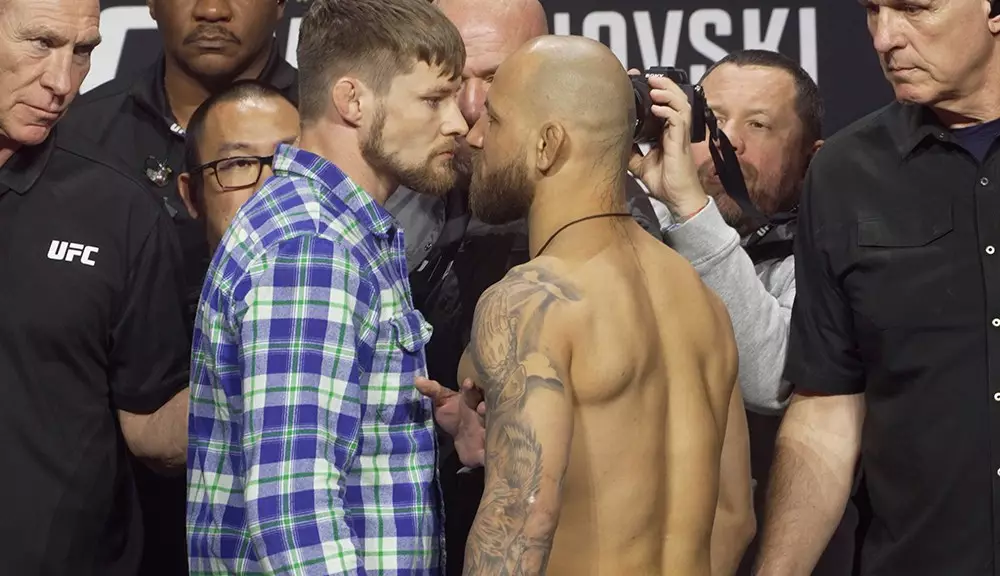Bryce Mitchell is no stranger to the octagon, but the lead-up to his fight at UFC 314 has been anything but ordinary. With a professional record of 17 wins and 2 losses, Mitchell has earned his place as a formidable competitor. However, recent remarks he made that supported controversial historical figures have overshadowed his athletic prowess. This has ignited a firestorm of backlash from fans and pundits alike, who are now questioning not only his motivations but also his character. Mitchell’s attempt to walk back those comments during recent interviews has added layers to an already complicated narrative.
Amid this turmoil, he is set to face Jean Silva, a growing contender with an impressive record of 15-2. Silva has seized on the opportunity to characterize himself as the antithesis to Mitchell’s controversial persona, successfully rallying public sentiment against the fan-favorite by instigating crowd chants during a recent press conference. The intensity of public opinion could have crushed a less seasoned fighter, but Mitchell claims to be unaffected, demonstrating a mindset that seems almost detached from the events swirling around him.
The Burden of Expectations
While other athletes might buckle under such scrutiny, Mitchell’s assertion that he is “unfazed” raises questions about authenticity and deeper psychological turmoil. His reference to experiencing “demonic dreams” post-press conference could indicate that the mental burden of controversy is weighing heavily on him. The stark contrast between being a loved contender and facing collective ire can create a psychological schism that not only affects performance but also mental well-being.
During an interview, he described how he perceives this fight as a battle between good and evil. Here, he positions himself against Silva, whom he accuses of spiritual possession, framing the upcoming bout as fundamentally moral. This narrative could serve as both a coping mechanism and a motivational tool, allowing Mitchell to channel external criticism into a fervent resolve to win.
Fight Night: A Clash of Paradigms
As the fight night approaches, the stakes couldn’t be higher for both fighters. While Mitchell positions himself as engaged in a moral fight, Silva’s strategy could center around leveraging the emotional turmoil swirling around his opponent. This clash of ideologies may not only fuel their competitive spirit but transform the event into a larger commentary on the moral and ethical responsibilities of athletes.
In the world of mixed martial arts, where personal narratives often intersect with athletic performance, Mitchell’s journey becomes a case study in how the intersection of fame, freedom of speech, and backlash can manifest in mental and emotional ways. The unpredictable nature of human psychology in high-stakes environments like the UFC can lead to unpredictable outcomes in the octagon, where physical prowess meets psychological warfare.
As the date of the fight looms closer, spectators find themselves not just anticipating physical combat but also witnessing a clash that transcends sports—forcing spectators and athletes alike to grapple with broader societal themes that resonate far beyond the cage.

